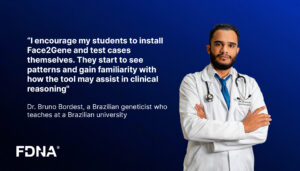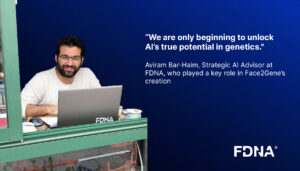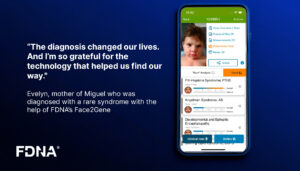January 7, 2019
The article describes how artificial intelligence is revolutionizing the diagnosis of rare genetic disorders by analyzing facial features from a simple photograph. Using advanced algorithms, AI can detect subtle facial anomalies linked to specific genetic conditions, providing quicker and more accurate diagnoses than traditional methods. This innovative approach has the potential to significantly improve patient outcomes, especially for those with hard-to-diagnose disorders. By utilizing just a photo, healthcare providers can expedite the diagnostic process, leading to earlier interventions and better management of these conditions. This technology represents a major leap forward in the integration of AI in healthcare.


